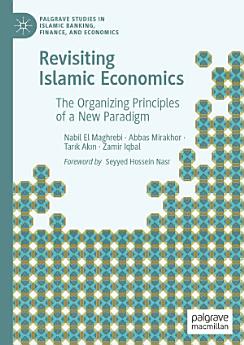Revisiting Islamic Economics: The Organizing Principles of a New Paradigm
About this ebook
Iqtisād offers a genuine and authentic Islamic paradigm with unique etymological and philosophical foundations. It is a unique system that derivesits organizing principles from the principal source of the Quran, rather than Economics. The logical coherence of its immutable system of rules compliance, institutional structures, and risk-sharing relations provides the foundations for economic dynamism, financial stability, and shared prosperity. It ensures that resources are efficiently managed, poverty is eradicated, income and wealth mal-distributions are corrected, and the internal sources of economic injustices gripping human societies are eliminated.
The Impossibility Theorem proposed in this book implies that, metaphysically, ontologically, epistemologically, axiologically, and teleologically, the two polar cases of Iqtisād and Economics are so radically different to rule out any grafting of one onto the other in order to present an intermediate paradigm with a synthetic discipline called Islamic economics. Given its multidisciplinary contents,this book will be of interest to a wide audience, including economists, policymakers, philosophers, theologians, and jurists, and can guide also free-thinking readers to a clarity of understanding about the conditions of humanity and the imperative of change with a sincerity of purpose and coherence in knowledge.
About the author
Nabil El Maghrebi is Vice President at Wakayama University, and Visiting Professor at the Center for Mathematical Modeling and Data Science, Osaka University, Japan.
Abbas Mirakhor is a retired Professor of Economics and the Former Executive Director of the International Monetary Fund (IMF).
Tarık Akın is Head of the Department of Participation Finance at the Finance Office of the Presidency of the Republic of Türkiye.
Zamir Iqbal is the VP Finance and Chief Financial Officer (CFO) of the Islamic Development Bank. Prior to that he served at senior positions at the World Bank.




